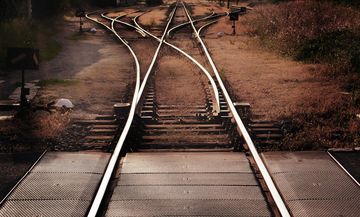Think differently to make your choices work for you
When growing up, I often experienced an interesting phenomenon. If I was feeling low, sad or depressed, angry, worried or stressed, I couldn't fathom how to deal with these emotions effectively. But no matter what the situation or the mood, all I had to do was look up and stare at the vast clear blue sky. I cannot explain it but slowly the feelings would fade away and my mood would uplift instantaneously. I would feel lighter and rejuvenated.
Today, when I look back I miss the times when I could do that effortlessly. Now it takes a substantial amount of time and forced thinking and yet, often, I fail.
I wondered why. Did the younger me believe that it’s the little things that make life simpler? Or did choosing light instead of darkness make me see things clearly and in that clarity, everything made sense?
So why am I unable to recreate that simplicity of thinking today? Perhaps because I think too much, I have too much information to play with or I'm always digging deeper to find something meaningful. I'm hardly happy with what I have, constantly feeling there’s something missing.
And then it struck me that perhaps ‘how’ I think about the choices I make, limit my ability to recreate that simplicity.
Be who you truly are
I strongly feel that this statement makes life difficult. When making a choice, this notion unconsciously guides us to give priority to the belief that once the choice is made, life will be perfect or we will succeed. It almost feels like an ultimatum and obstructs us from viewing choices instead as the process of making small changes. In other words, continue to acknowledge that life will to have its ups and downs; something’s will work while others won't or will backfire.
The good versus right choice
Often when judging different options we realise that they each have merit but neither is better overall. Thus it’s important to aim towards making a good choice instead of insisting that it be the right choice. ‘Right’ is a matter of perspective. If we shift the focus from ‘right’ then a choice gone wrong (or not what we expected) doesn’t seem like a failure. A slow build-up of such failures tends to make us angry with ourselves. Anger doesn't help growth but fuels anxiety. And any choice made under stress only binds us within its power more strongly.
We are what we do repeatedly
Who we are as individuals and our values and outlooks have a deep impact on our choices thereby making the process difficult. We tend to juggle our rational thoughts or the tangibles in hand to decide but rarely think of how the choices make us feel at a personal level. Chances are that some choices excite us while others elicit fear of the unknown. We must attempt to understand the feelings associated with these fears and struggles since as individuals, how we generally respond to them is exactly how we will respond to them when pertaining to a choice. Thus being aware of our inner feelings is as crucial to making us feel good about ourselves and thereby our decisions.
The consequence of choices
The hard reality that we’re free to choose but are not free from the consequences of that choice is often overlooked making us prone to finding faults in external factors. We’re constantly worrying about people’s expectations from us. It’s a challenge yet looking inwards, recognising and accepting that people and situations are powerless without our response to them helps alter the impact of our choices.
A better future
Understandably, we make decisions based on how our future should ideally look like. And yes, although we’re responsible for our future, what we fail to give credence to is that we’re aiming to create it based on our present needs and expectations. Therefore, if we look at making a choice, while consciously being aware of our present realities, then we open ourselves to knowing that the future will soon become our present and we’ll have to re-prioritise and make another choice to create a newer future. Simultaneously, it will empower us not to feel stuck with the choice we’ve made but allow us the flexibility to move ahead.
As we continue to weave the stories of our daily lives, the only constant is our need to make choices. We refer to these choices as easy, hard or difficult. Perhaps it’s time to refocus on the reasons we give ourselves instead, when deciding and thereby making them work for us.












